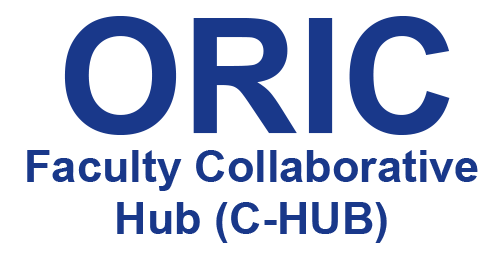
Faculty Name
Kimberly Jackson, Ph.D.
Title
Chair of Chemistry & Biochemistry, Professor, Food Studies Program Director
Department
Chemistry and Biochemistry
Phone
404-270-5792
Office Location
Albro-Falconer-Manley Science Center 343
Education
Ph.D., Clark Atlanta UniversityB.S., Alabama State University
Biography
Dr. Kimberly M. Jackson is an associate professor of biochemistry and director of the new interdisciplinary food studies program at Spelman College. She is also -director of a living and learning community for STEM scholars, an initiative whose goal is to improve access to biomedical research careers for women of color, while addressing a critical national need by cultivating talent for the STEM workforce.
A Fulbright scholar, Dr. Jackson’s varied research efforts focus on the use of novel therapeutic agents for hormone refractory prostate cancer and the role of minority-serving institutions and women of color in diversifying the STEM pipeline. She maintains a strong and solid research program with a host of publications and has secured more than $1 million in funding from multiple agencies to support her research.
Dr. Jackson has held a research fellow position at the Marine Biological Laboratory in Woods Hole, Massachusetts, and a visiting faculty appointment at Harvard Medical School in Boston in the systems biology department. She serves on two national/international advisory committees: COACh for Women Scientists and engineers and the American Chemical Society Committee on Minority Affairs.
"Spelman allows me to empower women of color to do dynamic science,” said Dr. Jackson, who has mentored more than 30 students since arriving at Spelman College in 2002 and provided them with research experiences in cancer therapeutics and drug discovery.
Honors & Awards
Women’s International Study Center Residential Scholar, 2016
Fulbright Scholar to Antigua and Barbuda, 2015-2016
Governor’s Teaching Fellow, 2015
UNCF Mellon Summer Faculty Residency Award, 2012
CIEE Ping Fellowship to Italy, 2012
American Association for Cancer Research Minority Serving Institution Faculty Research Award, 2012
Spelman’s Presidential Award for Excellence in Teaching, 2012
Spelman’s Presidential Award for Excellence in Scholarship, 2007
Courses Taught
Race and Genetics CHE 405Advanced Biochemistry CHE 446
Biochemistry CHE 311
Research-based Biochemistry Laboratory CHE 313L
Food Chemistry CHE 159
General Chemistry Laboratory CHE 111L
Remembering Mama's Soul Food: Discourses of Food, Community & Gender IBQC/EDU 100
Research Interests
My laboratory examines the use of various diet-derived as potential chemotherapeutic agents for hormone-refractory or advanced prostate cancer. Currently, there is no curative therapy available once prostate cancer has metastasized or progressed to advanced disease. It is therefore imperative to develop alternative effective therapies, such as chemotherapeutic agents with novel mechanisms of action.Students have the opportunity to participate in a laboratory experience that extends from computational modeling and data analytics to cellular and molecular investigations in experimental cancer therapeutics while interrogating androgen receptor function (signaling), epigenetics and prostate cancer progression.
Publications
1. Jackson, K.M., M. Ayalew, D.V. Bradley, Y. Olubummo, J.O. Thomas, J. Wilson. A Training Ground for Women of Color in STEM: Spelman College Tackles the STEM Pipeline as a Social Justice Issue. NETWORK, a Journal of Faculty Development, Spring 2016.2. Winfield, L.L, K.M. Jackson, Y. Jelani, S. Sanders, A. Thompson. Promoting Global Connections in Chemistry. NETWORK, a Journal of Faculty Development, Spring 2015.
3. Jackson, K.M. and L.L. Winfield. Realigning the Crooked Room: Spelman Claims a Space for African American Women in STEM. Peer Review, 16 (2): 9-12, Spring 2014.
4. Mancia, M.D., M.E. Reid, E. DuBose, J Campbell, K.M. Jackson. Characterization of Licorice Root (Glycyrrhiza glabra) Constituents by GC/MS, Natural Product Communications, 9 (1): 91-94 (2014).
5. Bayse, G.S., L.P. Hammonds-Odie, K.M. Jackson, D.K. Tucker and W.G. Kirlin. Permeation of Roxarsone and its Metabolites Increases Caco-2 Cell Proliferation. Advances in Biological Chemistry, 3: 389-96(2013).
6. Odom, R. Y., M.Y. Dansby, A.M. Rollins-Hairston, K.M. Jackson, and W.G. Kirlin. Phytochemical induction of cell cycle arrest by glutathione oxidation and reversal by N-acetylcysteine in human colon carcinoma cells. Nutrition and Cancer 61(3): 332-9 (2009).
7. Lee, M.E., D. Martin, T. King, L. Brown, M. De Leon, K.M. Jackson, C.M. Woods. Gene-Silencing of Reversion-induced LIM Protein Compromises Responses to Interleukin-16 in Jurkat T-cells, Proceedings of the International Society for Interferon and Cytokine Research and International Cytokine Society, 7:49-54 (2008).
8. Jackson, K.M., M.C. Frazier, and W.B. Harris. Suppression of the Androgen Receptor in LNCaP Prostate Cancer Cells by Dibenzoylmethane. Anticancer Research 27: 1483-88 (2007).
9. Frazier, M.C., K.M. Jackson, E. J-Stephens, M.G. Anderson, and W.B. Harris. Proteomic Analysis of Proteins Altered by Dibenzoylmethane in Human Prostatic Cancer LNCaP Cells. Proteomics 4: 2714-21 (2004).
10. Harris, W.B., and K.M. Jackson. Suppressors of Androgen Receptor Protein Expression as Chemopreventive, Antineoplastic and Anti-progression Agents in Prostate Cancer. US Patent Publication-US 2004/0116529 Al, (2004).
11. Jackson, K.M., M. DeLeon, C.R. Verret, and W.B. Harris. Dibenzoylmethane Induces Cell Cycle Deregulation in Prostate Cancer Cells. Cancer Letters 178 (2): 161-5 (2002).

